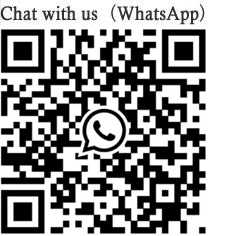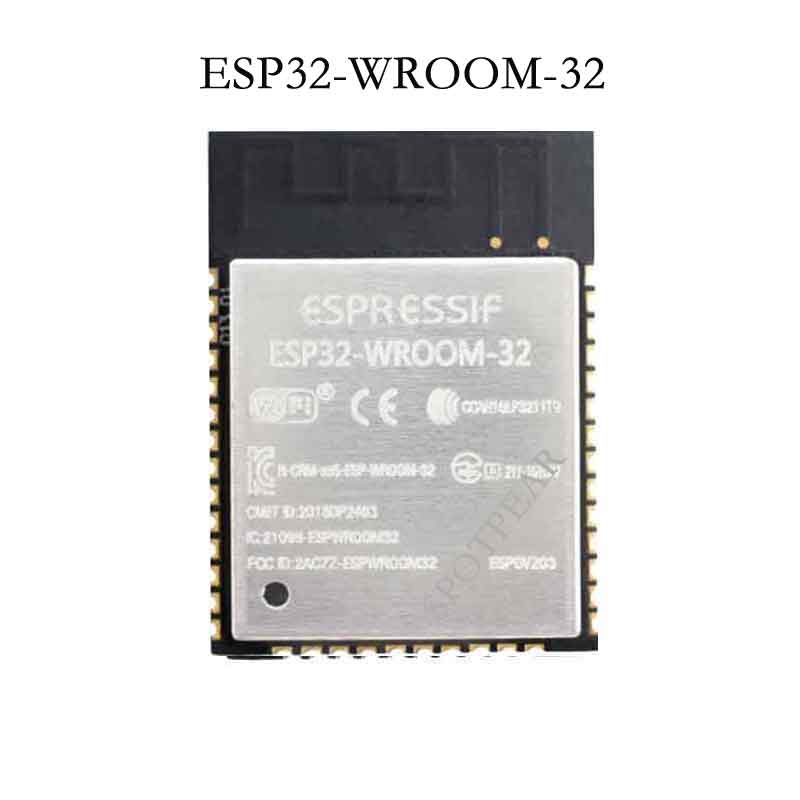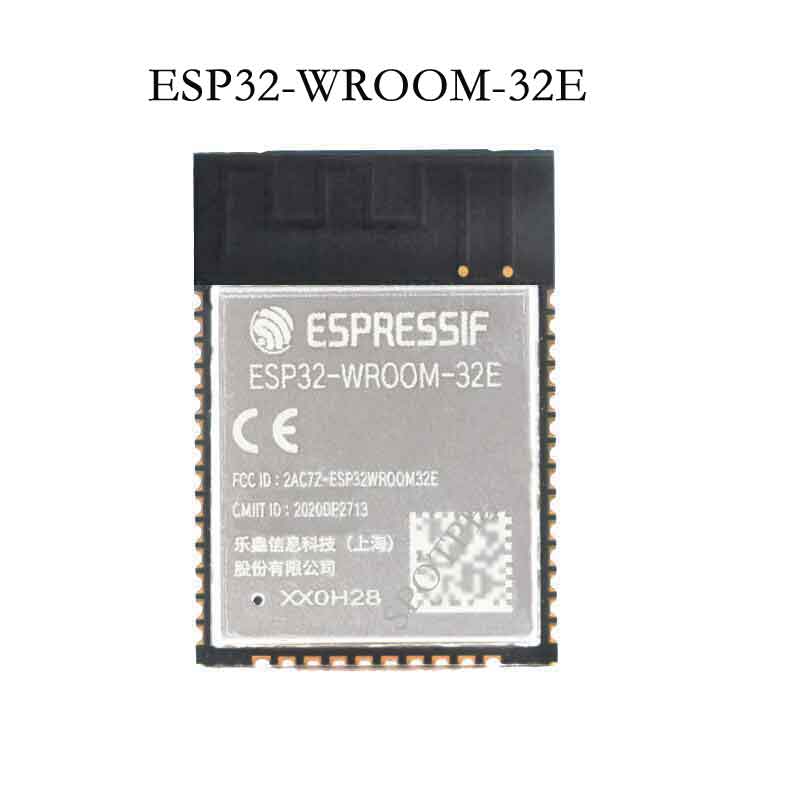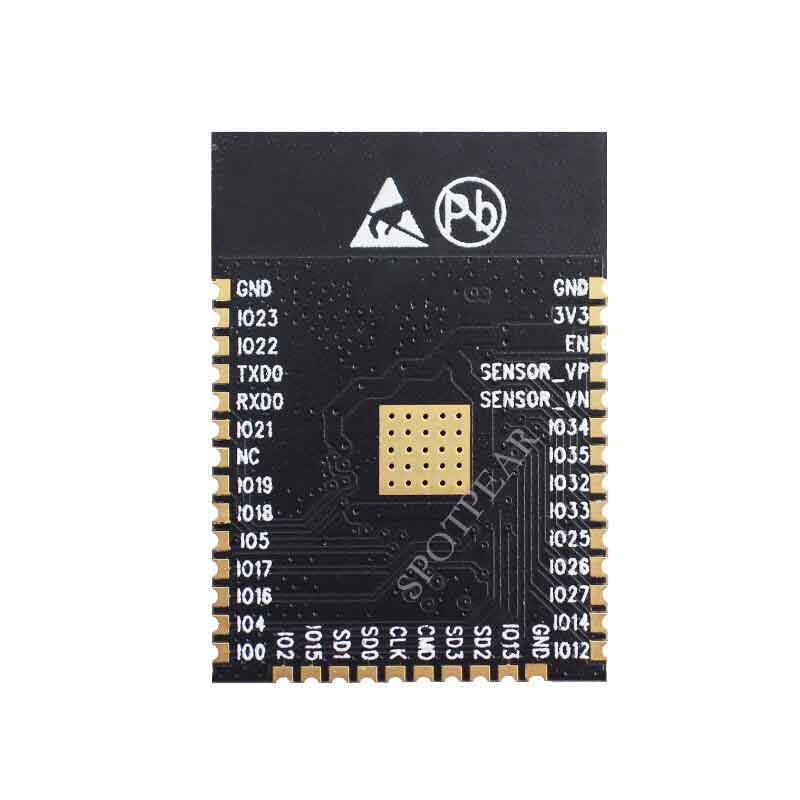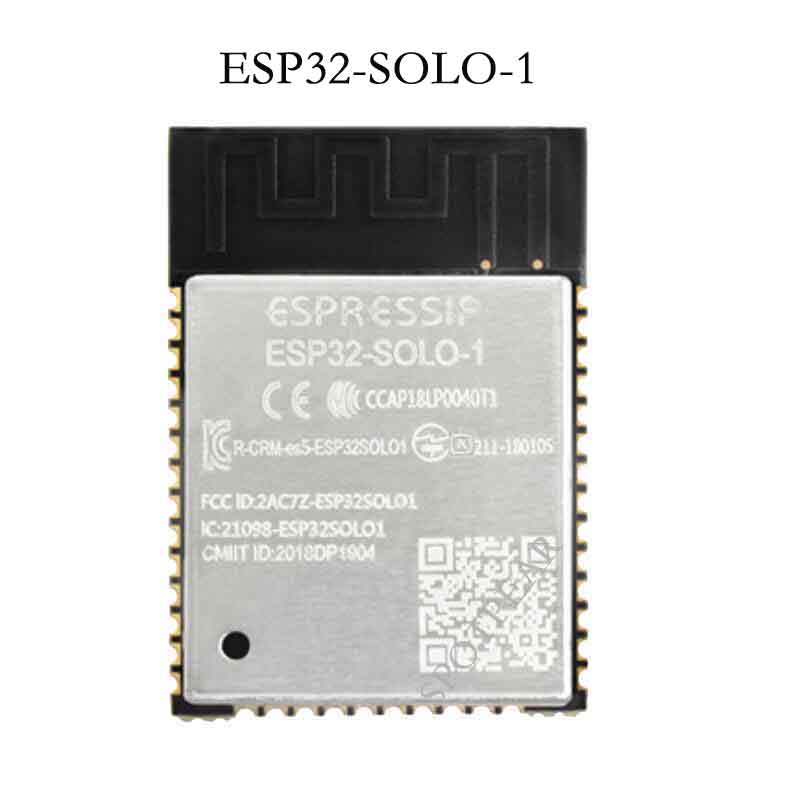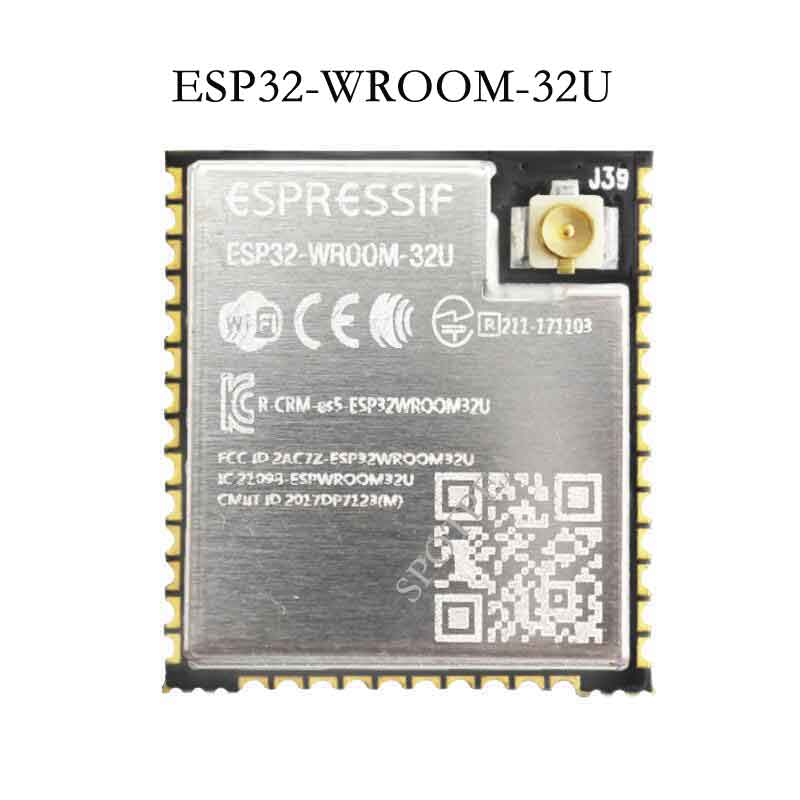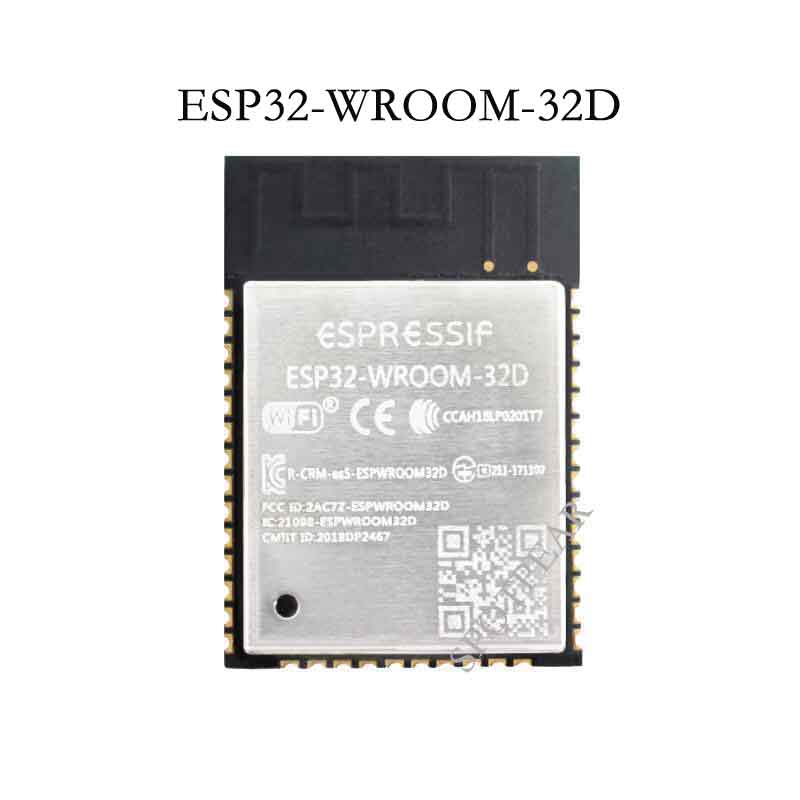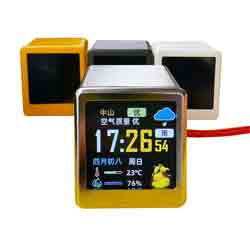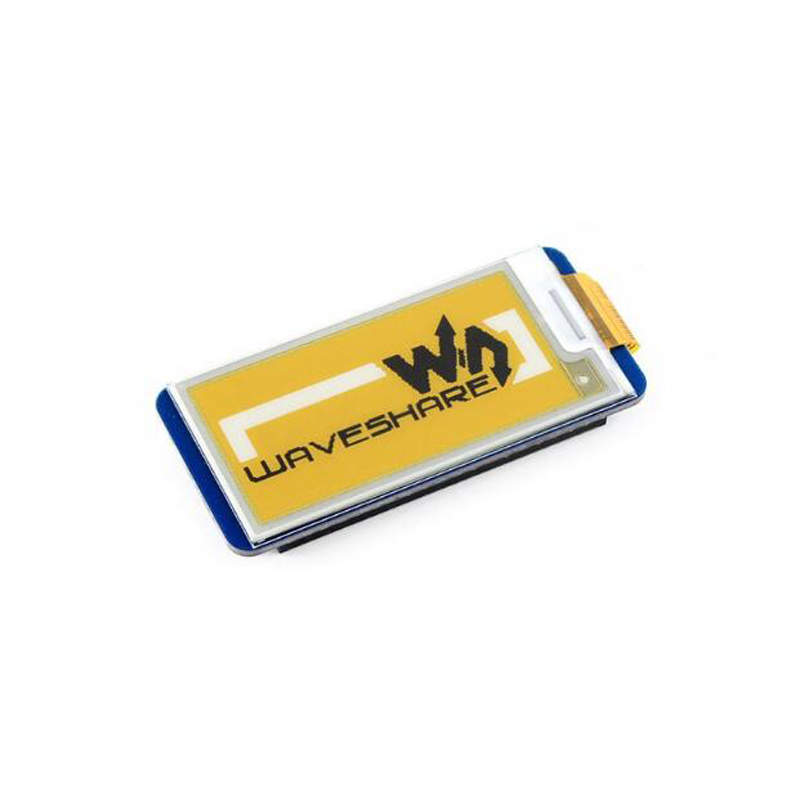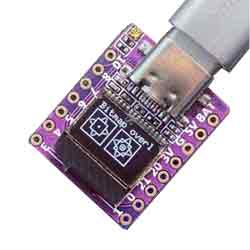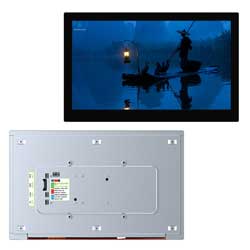- sales/support
Google Chat:---
- sales
+86-0755-88291180
- sales01
sales@spotpear.com
- sales02
dragon_manager@163.com
- support
tech-support@spotpear.com
- CEO-Complaints
zhoujie@spotpear.com
- sales/support
WhatsApp:13246739196
- HOME
- >
- PRODUCTS
- >
- ESP32 Series
- >
- Core Board
- >
- Other
ESP32 WROOM 32 ESP32 original module WROOM ESP 32 Dual Core WiFi Wireless Bluetooth MCU Module 32UE
$3.59
Brand:Spotpear
SKU:0208002
Date:2021-04-20 10:56
ESP32-WROOM-32 ESP32 original module WROOM ESP-32 Dual Core WiFi Wireless Bluetooth MCU Module 32UE 32U 32E 32D dual core
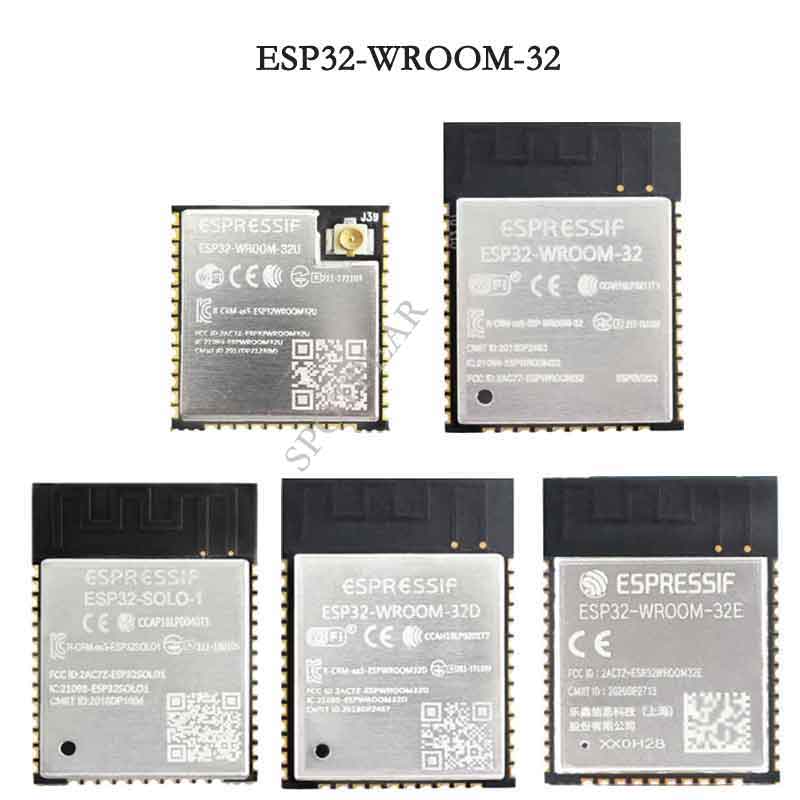
Features
- 1. ESP32 is a single-chip solution that integrates 2.4 GHz Wi-Fi and Bluetooth dual-mode, using TSMC's ultra-low-power 40-nm process.Optimal power performance, RF performance, stability, versatility and reliability for a wide range of applications and different power requirements.
- 2. ESP32 is designed for mobile devices, wearable electronics and Internet of Things (IoT) applications. As the industry's leading low power chip, ESP32 has Fine-resolution features such as clock gating, power-saving modes, and dynamic voltage scaling.For example, in a low-power IoT sensor Hub application scenario, ESP32 will only be periodically woken up under certain conditions. Low duty cycle can make
- 3. The energy consumption of the ESP32 chip reaches a small value. The output power of the RF power amplifier can also be adjusted to achieve the most balanced communication distance, data rate and power consumption.
- 4. ESP32 is designed for mobile devices, wearable electronics and Internet of Things (IoT) applications. As the industry's leading low power chip, ESP32 has Fine-resolution features such as clock gating, power-saving modes, and dynamic voltage scaling.
- 5. The energy consumption of the ESP32 chip reaches a small value. The output power of the RF power amplifier can also be adjusted to achieve a balance between communication distance, data rate and power consumption.
WiFi
- 802.11 b/g/n/e/i
- 802.11 n (2.4 GHz) with speeds up to 150 Mbps
- 802.11 e: QoS mechanism for wireless multimedia technology
- WMM-PS, UAPSD
- A-MPDU and A-MSDU frame aggregation technology
- Block reply
- Fragmentation and reorganization
- Beacon automatic monitoring / scanning
- 802.11 i security features: pre-authentication and TSN
- Support WPA / WPA2 / WPA2-Enterprise / WPS encryption
- Infrastructure BSS Station Mode / SoftAP Mode
- Wi-Fi Direct (P2P), P2P discovery, P2P GO mode and P2P power management
- UMA compatibility and certification
- Antenna diversity and selection
Bluetooth
- Bluetooth v4.2 full standard, including traditional Bluetooth (BR/EDR) and Bluetooth Low Energy (BLE)
- Supports standard Class-1, Class-2 and Class-3 without external power amplifier
- Enhanced precision power control
- Output power up to + 10 dBm
- NZIF receiver with BLE reception sensitivity of -98 dBm
- Adaptive Frequency Hopping (AFH)
- Standard HCI based on SDIO / SPI / UART interface
- High speed UART HCI up to 4 Mbps
- Support for BT 4.2 controller and host protocol stack
- Service Discovery Protocol (SDP)
- Universal Access Application (GAP)
- Security Management Protocol (SMP)
- Bluetooth low energy
- ATT / GATT
- HID
- Supports all GATT-based Bluetooth low energy applications
- SPP-Like Bluetooth Low Energy Data Transfer Protocol
- BLE Beacon
- A2DP / AVRCP / SPP, HSP / HFP, RFCOMM
- CVSD and SBC audio codec algorithms
- Bluetooth piconet and Scatternet
CPU/ Storage
- Xtensa® 32-bit LX6 dual-core processor, computing power up to 600 DMIPS
- 448 KByte ROM
- 520 KByte SRAM
- 16 KByte SRAM in RTC
- QSPI can connect up to 4 Flash/SRAM, each Flash up to 16 MBytes
- Power supply voltage: 2.2V to 3.6V
Clock/ timer
- uilt-in 8 MHz oscillator, support self-calibration
- Built-in RC oscillator, support self-calibration
- Support external 2 MHz to 40 MHz crystal oscillator
- Support external 32 kHz crystal oscillator for RTC, support self-calibration
- 2 timer groups, each group includes 2 64-bit general-purpose timers and 1 main system watchdog
- RTC timer with sub-second precision
- RTC watchdog
Feature:
Peripheral interface
- 12-bit SAR ADC, up to 18 channels
- 2 8-bit D/A converters
- 10 touch sensors
- Temperature Sensor
- 4 SPI
- S2 I2S
- 2 I2C
- 3 UARTs
- 1 Host SD / eMMC / SDIO
- 1 Slave SDIO / SPI
- Ethernet MAC interface with dedicated DMA, supporting IEEE 1588
- CAN 2.0
- IR (TX / RX)
- Motor PWM
- LED PWM, up to 16 channels
- Hall sensor
- Ultra-low power pre-analog amplifier
Security Mechanism:
- Support all IEEE 802.11 security features, including WFA, WPA/WPA2 and WAPI
- Safe boot
- Flash encryption
- 1024-bit OTP, up to 768 bits available to users
- Encryption hardware accelerator:
– AES
– HASH (SHA-2) library
– RSA
– ECC
– Random Number Generator (RNG)
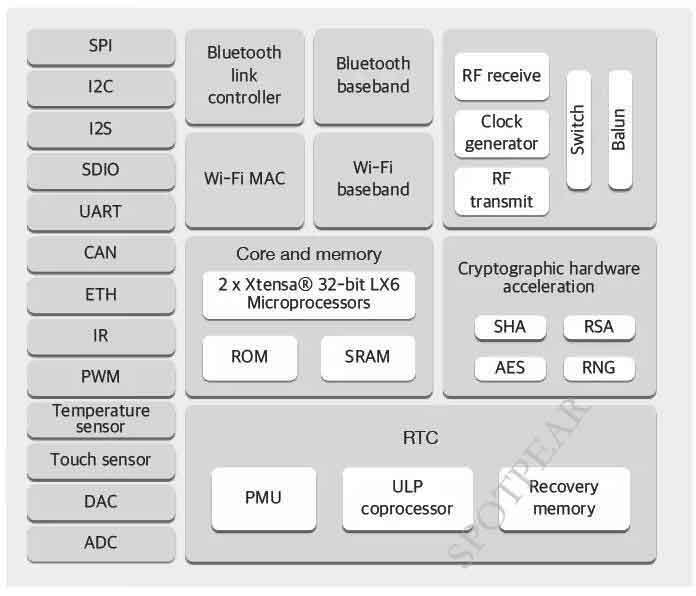
Application:
- Universal low-power IoT sensor Hub
- Universal low-power IoT recorder
- Camera video streaming
- OTT TV box/set-top box equipment
- music player
– Network music player
– Audio streaming media equipment
- Wi-Fi toys
– Counter
– Toy anti-lost device
- Wi-Fi voice recognition equipment
- Headset
- Smart socket
- Home automation
- Mesh network
- Industrial wireless control
- Baby monitor
- Wearable electronics
- Wi-Fi location-aware equipment
- Security ID tag
- Health care
– Motion monitoring and anti-lost alarm
– Logger
Development support:
- SDK firmware supporting fast online programming
- Open source tools based on GCC
TAG:
Raspberry Pi Autofocus Camera
Raspberry Pi 5 MIPI Camera Cable
Raspberry Pi 5 22Pin to 15Pin
Raspberry Pi 5 Case
SpotPear
SpeedyBee F405 V3 BLS 50A FC ESC Stack Flight Controller DJI FPV Drone
Modbus RTU Relay 32CH
DeepSeek AI Chat Box ESP32-S3 1.54 inch LCD N16R8 Development Board Display Screen Wifi Weather Station TimeClock
SpeedyBee Bee35 3.5 inch Frame RC FPV Drone
Raspberry Pi Pico 1.28inch
JETSON NANO
RP2040 LoRa
Desktop electronic ornaments
Raspberry Pi DSI
10 Axis DOF ROS IMU Sensor Accelerometer Gyroscope Magnetometer Temperature Pressure
Raspberry Pi Refractive Prism
Raspberry Pi 4 Model B 1GB
Raspberry Pi 5 PoE HAT
Raspberry Pi 5 PCIe M.2 5G 4G 3G RM530N-GL
JLINK OB
Forum:



